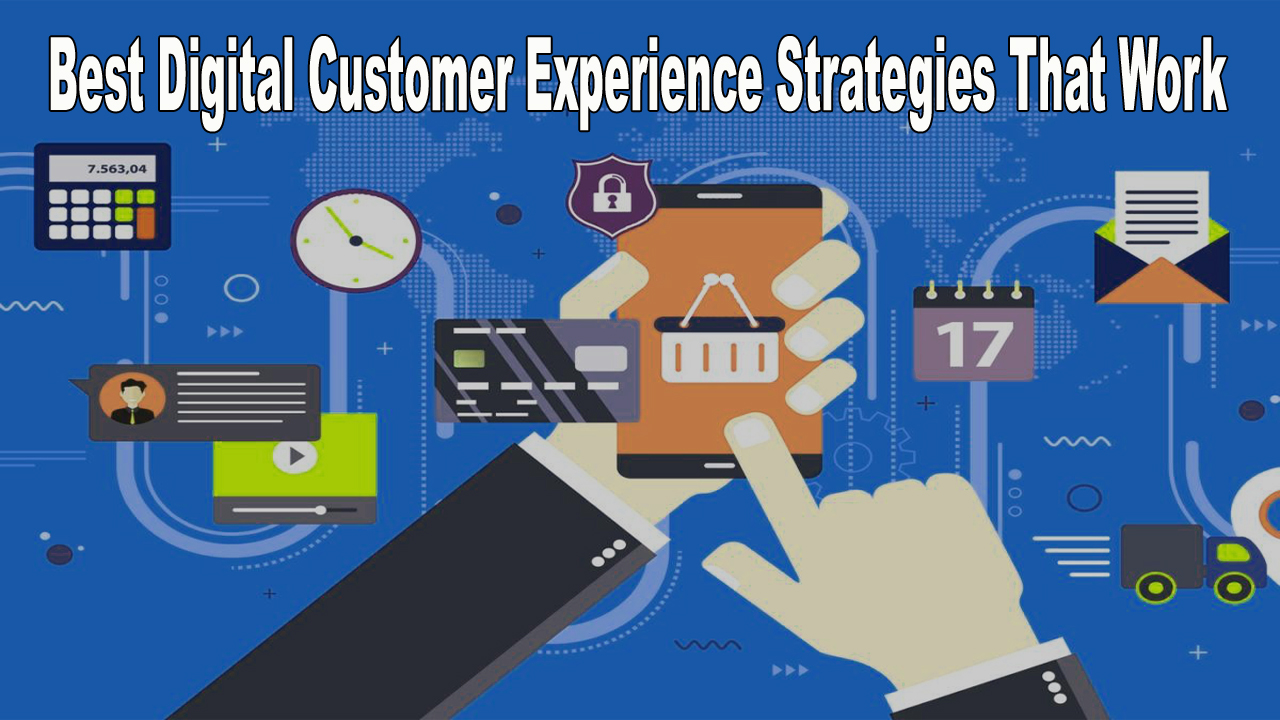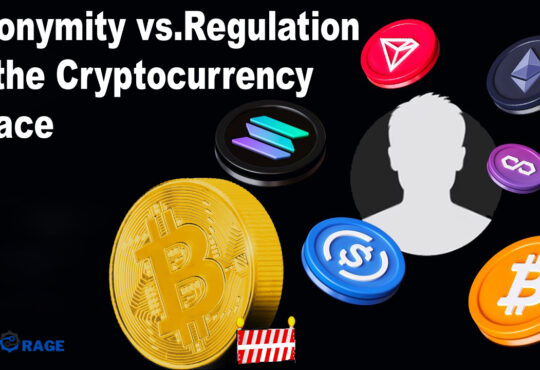Best 7 Customer Experience Strategies That Works

In todays fiercely competitive business landscape the battle for customer loyalty hinges on the quality of the customer experience (CX) a company delivers. Customers have more choices than ever before and their expectations are higher. To thrive businesses must adopt effective CX strategies that work. This article explores seven of the best customer experience strategies that have proven to be successful providing actionable insights for companies looking to excel in the realm of customer satisfaction and loyalty.
The Imperative of Exceptional Customer Experience
Exceptional customer experience is not merely a nice-to-have in the business world; its a necessity. In an age where customers have countless options at their fingertips providing a memorable and satisfying experience is the linchpin of success. Companies that prioritize CX recognize its significance not only in customer retention but also in customer acquisition through positive word-of-mouth and brand advocacy. In a survey by PwC 73% of consumers cited CX as a crucial factor influencing their purchasing decisions emphasizing its paramount importance in todays market.
Defining Customer Experience (CX)
To navigate the path to delivering an exceptional customer experienceits essential to start with a clear understanding of what CX entails. Customer experience encompasses every interaction touchpoint and engagement a customer has with a brand throughout their entire journey. It includes not only the products or services offered but also the quality of service ease of transactions and emotional connection forged during these interactions. In essence CX is the sum of all experiences a customer has with a company forming their perception and ultimately influencing their loyalty.
Personalization: The Foundation of Customer-Centric CX
In a world where customers expect tailor-made experiences personalization has emerged as the cornerstone of customer-centric CX. Businesses that invest in understanding and catering to individual customer preferences enjoy a substantial advantage in building strong lasting relationships. Personalization in CX can be achieved through two primary avenues:
- Effective communication tailored to individual preferences and needs is central to personalization in CX. This includes personalized marketing messages product recommendations and targeted offers. By leveraging customer data and employing segmentation and automation companies can deliver relevant content that resonates with each customer.
- To achieve personalization businesses must harness data-driven insights and analytics to understand customer behavior and preferences. Customer data is a goldmine of information and its analysis can help companies tailor their offerings and communications. By tracking customer behavior businesses can predict future actions and anticipate needs thereby enhancing the effectiveness of personalization efforts.
Multichannel Engagement
In a digital era customers engage with businesses through a multitude of channels. From social media and email to in-person interactions and chat support the avenues for interaction are vast and diverse. An effective CX strategy should aim to provide a seamless consistent and exceptional experience across all these channels. Achieving this requires a twofold approach:
- An omnichannel approach ensures a consistent and integrated experience across multiple channels. Customers should be able to switch between different touchpoints without encountering inconsistencies or disruptions in their journey. For instance if a customer adds items to their online shopping cart and then later visits the physical store those items should still be in the cart. This level of consistency and integration can significantly enhance CX.
- Prompt and responsive customer support is an integral component of a successful multichannel CX strategy. Customers expect that their inquiries and concerns will be addressed quickly and effectively regardless of the channel they use to reach out. Whether through phone email live chat or social media businesses should be ready to provide assistance and resolve issues promptly. A swift and empathetic response not only solves problems but also enhances the overall customer experience.
Customer Feedback and Continuous Improvement
Collecting customer feedback is essential for any business that seeks to improve its CX continuously. The insights gained from customer feedback can be invaluable in identifying areas for enhancement and tailoring the experience to meet customer expectations. There are two key aspects to consider when it comes to feedback and continuous improvement:
- Implementing effective feedback collection mechanisms is vital for understanding customer sentiment. Surveys reviews and social listening are just a few ways to gather valuable feedback. Surveys can be conducted at various stages of the customer journey while online reviews and social listening can provide real-time insights into customer satisfaction or dissatisfaction. Businesses should carefully design their feedback collection processes to solicit specific actionable feedback that aligns with their CX goals.
- analyzing and acting on that feedback is where the real improvements take place. Companies should invest in the technology and expertise required to make sense of the data collected. Analyzing feedback helps in identifying pain points areas of concern and opportunities for enhancement. Once areas for improvement are identified businesses should implement changes and continually iterate on their CX strategy to address customer needs and preferences effectively. Its a dynamic process that requires adaptability and a commitment to excellence.
Technology Integration for Efficiency
In the digital age technology plays a pivotal role in delivering an exceptional CX. The strategic integration of technology can streamline processes increase efficiency and enhance customer satisfaction. Two critical aspects of technology integration in CX include:
- Automation and artificial intelligence (AI) are powerful tools for optimizing CX. Chatbots and virtual assistants can provide instant responses to common customer inquiries reducing wait times and enhancing efficiency. AI-powered analytics can uncover insights that might be challenging to discern manually helping businesses make data-driven decisions. By automating routine tasks and personalizing interactions businesses can focus their human resources on more complex and value-added activities further enriching the overall CX.
- Providing self-service options empowers customers to find answers to their queries or solutions to their problems independently. Knowledge bases FAQs and online tutorials can be valuable resources for customers seeking quick and convenient resolutions. Self-service options not only improve CX but also reduce the workload on customer support teams allowing them to focus on more complex inquiries.
Employee Engagement and Training
Exceptional CX starts from within. Engaged and well-trained employees are more likely to provide outstanding service as they understand the importance of CX and are equipped with the skills and knowledge to deliver it. Employee engagement and training are critical aspects of an effective CX strategy:
- Engaged employees are more likely to go above and beyond to meet customer needs and provide a memorable experience. Companies should invest in creating a positive and empowering work culture that encourages employees to take ownership of their roles and deliver exceptional service. Recognizing and rewarding outstanding performance can further boost employee morale and motivation which ultimately translates into better CX.
- Adequate training and development programs are essential to ensure that employees possess the skills and knowledge required to excel in their roles. Continuous learning opportunities including product training and soft skills development can help employees stay up-to-date with the latest industry trends and customer expectations. Training can also instill a customer-centric mindset emphasizing the significance of CX in all interactions.
Employee feedback mechanisms similar to those used for customers are valuable for identifying areas of improvement within the organization. By encouraging employees to provide feedback and suggestions businesses can gain insights into their experiences and perceptions uncovering opportunities for enhancement. Listening to and acting on employee feedback demonstrates a commitment to improving workplace conditions and consequently the customer experience.
Creating a Culture of Customer-Centricity
A customer-centric culture is at the core of any successful CX strategy. It involves aligning every aspect of the business with the goal of delivering a superior customer experience. Businesses should strive to infuse a customer-centric mindset throughout the organization:
- Leadership plays a crucial role in setting the tone for a customer-centric culture. Leaders should champion CX as a strategic priority and communicate its significance throughout the organization. By defining a clear vision of what an exceptional CX looks like and demonstrating unwavering commitment to it leaders can inspire employees to embrace the same values.
- Empowering employees to make decisions that benefit the customer is essential. A rigid rule-bound approach can hinder the ability to meet unique customer needs. Companies should encourage employees to use their judgment and take actions that align with the overarching goal of delivering an outstanding CX.
- Maintaining an active customer feedback loop can help organizations understand changing customer preferences and expectations. Regularly soliciting feedback and acting on it ensures that the CX strategy remains responsive to customer needs and relevant in a dynamic market.
Final Thoughts
In a world where customer expectations continue to rise businesses that excel in delivering exceptional customer experiences will undoubtedly gain a competitive edge. These seven proven strategies—ranging from personalization and multichannel engagement to employee engagement and a customer-centric culture—are foundational for building a robust CX strategy. Its imperative for businesses to view CX as an ongoing journey rather than a destination continuously adapting and evolving to meet customer expectations. As technology consumer behavior and market dynamics evolve so must the strategies and practices that drive superior customer experiences. By embracing these strategies and prioritizing CX excellence companies can create loyal customers foster brand advocacy and ultimately secure a lasting position in their respective markets.

Waqas Mushtaq is the founder of Tech Orage which is a prominent digital marketing agency based in Pakistan Since 2010.
He is a professional Freelancer who has completed successfully 400+ projects of website development & Digital Marketing (SEO – Google First Page Rankings).








